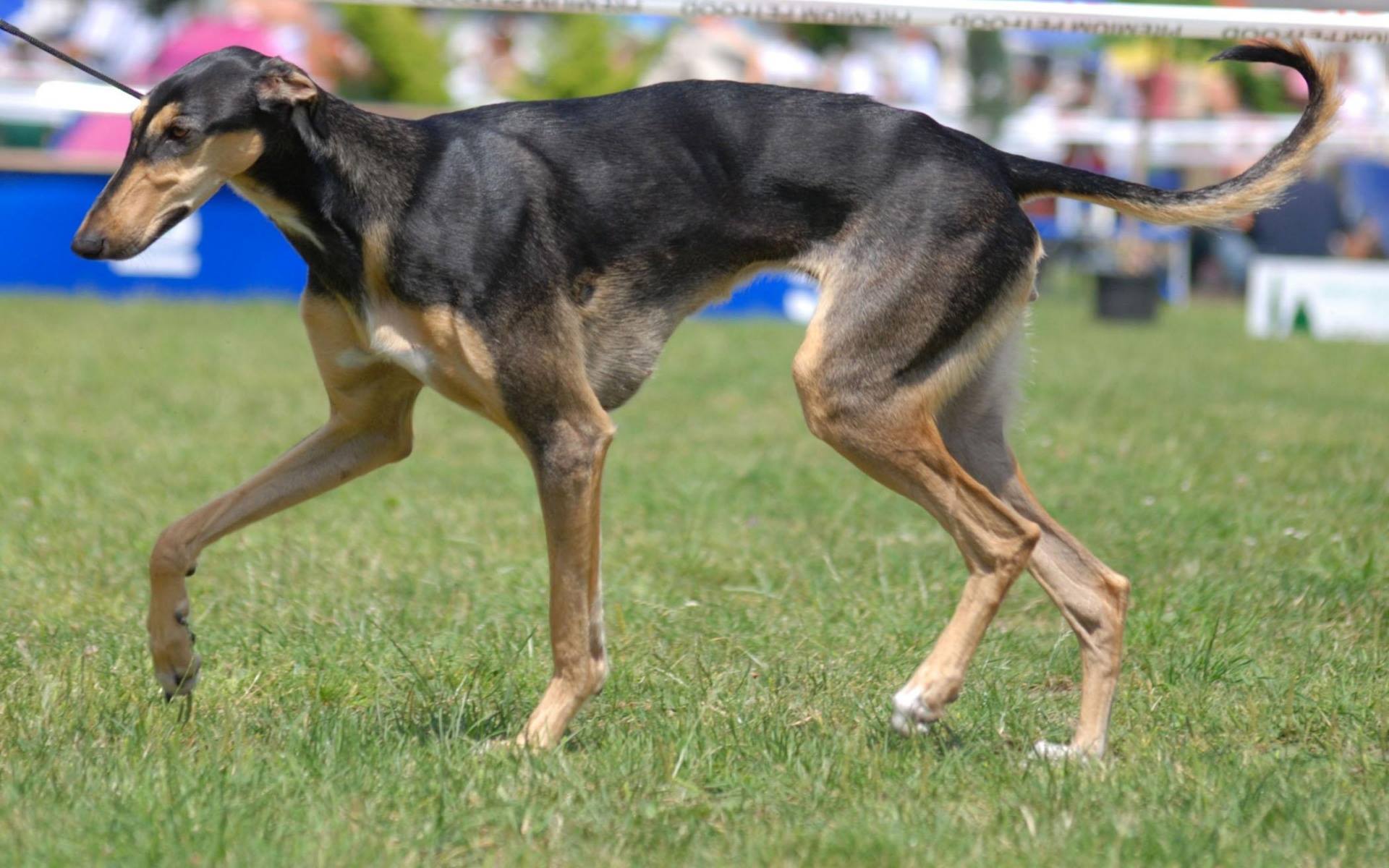Indigenous Dog Breeds of Tamil Nadu
Indigenous Dog Breeds of Tamil Nadu
Introduction
 Kanni dog breed is an indigenous, south indian, sight hound breed, found mainly in Tirunelveli, Thoothukudi, Sivakasi, Madurai and Virudhunagar districts of Tamil Nadu.
Kanni dog breed is an indigenous, south indian, sight hound breed, found mainly in Tirunelveli, Thoothukudi, Sivakasi, Madurai and Virudhunagar districts of Tamil Nadu.
Sight hound breeds of dog are playful, high speed sprinters, hunt by sight rather than scent with excellent guarding ability. They have an athletic, streamlined, slender body and long legs, narrow face with pointing eyes. These breeds are also called as Gaze Hounds.
Sight hounds are bred for as many as thousands of years to hunt preys, but today most of the sighthounds are kept as pets, with reduced physical activity. Though today some have developed mellow personality, most of them remain watchful, hostile to strangers. This breed is believed to be the extension of caravan hound or mudhol hound.
Breed characteristics
- Kanni dog is a medium sized hound breed, male stands about 63 cm at the withers and female about 56 cm at the withers.
- Body length ranges between 68 to 70 cm and tail length upto 38 to 40 cm.
- Ears are medium sized and flat.
- Adult body weight ranges between 22 to 25 kg.
- Kanni dogs are short haired breed, commonly found in brown with black colour, fawn (santhana pillai), light red (sevalai) to dark red. Sometimes it is also seen in creamy white colour (pal kanni), with white lines running on both sides of face.
Housing management - Kanni breed
Kanni dogs were used in recreation games like hunting wild rabbits in forest, and with the ban in hunting, farmers started domesticating kanni dogs. They are mostly reared in mud floor and indoors. Most of the dog owners provide shelter within their residence. Many surveys conducted in the breeding tract of kanni dogs reveal that owner provide simple shelter arrangement with innovative ideas. Unused plastic water tanks, wooden planks, tin sheets were used as materials for shelter. But, majority of dog owners maintained their dogs in mud floor.
Feeding Management of Kanni dog
Most of the Kanni dog owners feed their pets with regular diet as consumed by them, which includes homemade vegetarian food. The dogs were given non-vegetarian diet on special occasions like festivals and when consumed by owners. Commercial breeders provided them with special diets from brands available in market.
Breeding Management of Kanni breed
The average age at maturity is 12-15 months in Kanni male and 15-18 months in Kanni female dogs. The dog owners in the native breeding tract do not mate the females at all times when they are in heat, instead mating is carried out only when they are in need of kanni puppies. Whereas, commercial breeders utilize the regular heat cycle for breeding. The average life time whelping in kanni dog is around 8years and the average litter size is 5 to 6 pups per whelping.
Health Management of Kanni dogs
As kanni dogs are native to this region, the occurrence of diseases were less compared to other exotic breeds and they also have more tolerance towards harsh weathers. Some common health issues encountered in kanni dog is presence of intestinal worms and parvo viral infection, due to infection from soil and improper vaccination.
Conclusion
Indigenous dogs which are native to our region are more suitable for rearing as pets than the exotic breeds because of their good resistance to disease and easy management. Besides Kanni dog, there are many indigenous dog breeds in India namely, Rajapalayam, Chippiparai, Kombai, Himalayan Gaddi, Rampur Greyhound etc. With more people moving towards raising exotic dog breeds, there is a decrease in the indigenous population of dog breeds. Knowing the importance of indigenous breeds, Government of Tamil Nadu and Tamil Nadu Veterinary and Animal Sciences University (TANUVAS) involved in the establishment of Native Dog Research cum Conservation centre for Kombai and Kanni breed of dogs at Tenkasi, Tamil Nadu. Hence, it is imperative for the state and veterinarian to create awareness among people on embracing indigenous dog breeds and to preserve our rich heritage and animal wealth.
Content Creator : Dr. S. Preethi, M.V.Sc., Assistant Professor, Dept.of LPM, TANUVAS.
Last Modified : 12/6/2023
This topic provides information about Revised Guid...
Indigenous and exotic breeds of cattle and buffalo...
